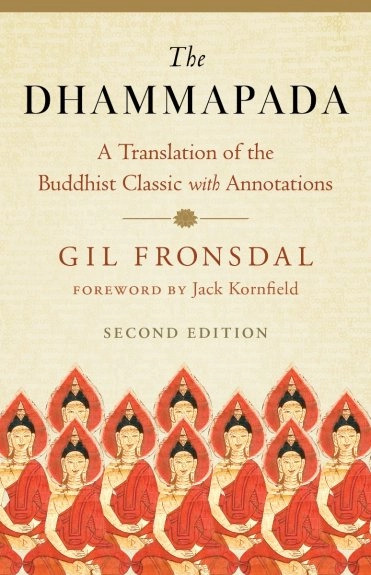The Fool and Old Age
In two timeless verses from the Pali canon, the Buddha urges his followers to abandon resentments and cultivate virtue. The post The Fool and Old Age appeared first on Tricycle: The Buddhist Review.

The Fool
Night is long for one lying awake.
Seven miles is long for one exhausted.
Samsara is long for fools
Ignorant of true Dharma.
If, while on your way,
You meet no one your equal or better,
Steadily continue on your way alone.
There is no fellowship with fools.
A fool suffers, thinking,
“I have children! I have wealth!”
One’s self is not even one’s own.
How then are children? How then is wealth?
Fools conscious of their foolishness
Are to that extent wise.
But fools who consider themselves wise
Are the ones to be called fools.
A fool associating with a sage,
Even if for a lifetime,
Will no more perceive the Dharma
Than a spoon will perceive the taste of soup.
A discerning person who associates with a sage,
Even if for a brief moment,
Will quickly perceive the Dharma,
As the tongue perceives the taste of soup.
Fools with no sense
Go about as their own enemies,
Doing evil deeds that
Bear bitter fruit.
No deed is good
That one regrets having done,
That results in weeping
And a tear-streaked face.
A deed is good
That one doesn’t regret having done,
That results in joy
And delight.
As long as evil has not borne fruit,
The fool thinks it is like honey.
But when evil does bear fruit,
Then the fool suffers.
The foolish ascetic who month after month
Eats food with the tip of a blade of grass
Is not worth a fraction
Of a person who has fathomed the Dharma.
Like fresh milk,
Evil deeds do not immediately curdle;
Rather, like fire covered with ash,
They follow the fool, smoldering.
Reasoning is harmful
To fools;
It ruins their good fortune
And splits open their heads.
Fools will want unwarranted status,
Deference from fellow monks,
Authority in the monasteries,
And homage from good families.
“Let both householders and renunciants
Believe that I did this.
Let them obey me in every task!”
Such are the thoughts of a fool
Who cultivates desire and pride.
The way to material gain is one thing,
The path to Nirvana another.
Knowing this, a monk who is the Buddha’s disciple
Should not delight in being venerated,
But cultivate solitude instead.
Old Age
Why the laughter, why the joy,
When flames are ever burning?
Surrounded by darkness,
Shouldn’t you search for light?
Look at this beautified body:
A mass of sores propped up,
Full of illness, [the object] of many plans,
With nothing stable or lasting.
This body is worn out—
So fragile, a nesting ground for disease.
When life ends in death,
This putrid body dissolves.
What is the delight
In seeing these dull-white bones
Tossed away
Like white gourds in autumn?
This city is built of bones,
Plastered with blood and flesh,
And filled with
Aging, death, conceit, and hypocrisy.
Even the splendid chariots of the royalty wear out.
So too does the body decay.
But the Dharma of the virtuous doesn’t decay
[For it is upheld when] the virtuous teach [it] to
good people.
The person of little learning
Grows old like an ox:
The flesh increases,
But insight does not.
Through many births
I have wandered on and on,
Searching for, but never finding,
The builder of [this] house.
To be born again and again is suffering.
Housebuilder, you are seen!
You will not build a house again!
All the rafters are broken,
The ridgepole deconstructed;
The mind, arrived at the deconstructed,
Has attained the end of craving!
Those who have neither lived the chaste life
Nor gained wealth in their youth
Waste away like frail herons
In a lake devoid of fish.
Those who have neither lived the chaste life
Nor gained wealth in their youth
Lie around like [arrows misfired] from a bow,
Lamenting the past.
♦
From The Dhammapada: A Translation of the Buddhist Classic with Annotations by Gil Fronsdal. © 2005, 2023 by Egil Fronsdal. This edition published in 2023. Reprinted in arrangement with Shambhala Publications, Inc. Boulder, CO.
![]()
Thank you for subscribing to Tricycle! As a nonprofit, we depend on readers like you to keep Buddhist teachings and practices widely available.

 Astrong
Astrong 

































